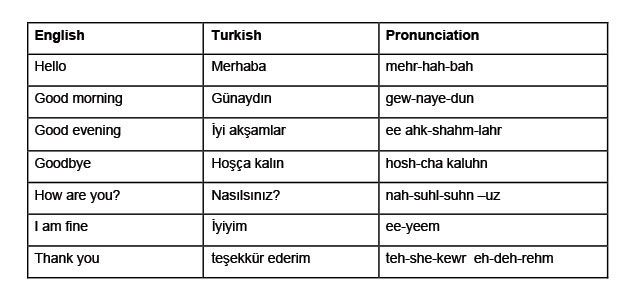
Guide to Turkish Greetings: Ways to Say Hello in Turkish
Fri, Dec 09, 2022, 03:04:30 AMHow can we say “hello” in Turkish? We have many versions for it but the most accurate translation can be “merhaba” although almost no one in Türkiye greets each other with “merhaba”. Turkish is a diverse and flexible language with a long history dating back as far as 5500 years ago. It belongs to the Altaic language family which makes it related to the Tungusic languages such as Mongolian, Korean and even Japanese. But we will talk about the modern Turkish which Türkiye currently uses.
History of Turkish
Turkish is one of the most ancient languages and it belongs to a family which is sixth most widely spoken language in the world cumulatively. Turkish can be separated into a three major phases as old Turkish, mid Turkish and modern Turkish. During the time Ottoman Empire ruled, there were Persian and Arabic words integrated into Turkish and as a result of that, it turned out to be a combination of these three different languages. Over the course of Ottoman’s reign which lasted almost seven centuries, the Turkish languages evolution was impeded. During this period Turkish was heavily influenced by other languages and the standard Turkish which is used now derives from the old Anatolian Turkish which was brough to into Anatolia by the Seljuk Turks in the late 11th century.
Evolution of the Turkish Language
Turkish used today is represented using the Latin alphabet which was introduced by Atatürk the founder of the Republic of Türkiye whereas before it was represented by the Ottoman Turkish Alphabet which is a variant of Perso-Arabic script. Furthermore, with its evolution throughout the history, it distinguishes from the other Turkic Languages in terms of dialects and accents. The current Turkish is due to the Atatürk’s reform on Turkish Language to be able to learn, understand and keep up with other civilized countries with Latin Alphabet origins.
Varieties in Turkish
As there are many ways to say hello in Turkish, there are lots of dialects of Turkish throughout Türkiye. The two major groups can be divided as Western Dialects and Eastern Dialects. The Danubian dialect which is considered as one of the major Turkish dialects is the only member of the Western group. The Eastern group however consists of Dinler, Edirne, Eskişehir, Gaziante, Razgrad, Rumelian, Karamanlı and Urfa dialects. Additionally, there are also sub categories such as Central-Anatolia forming with other dialects. The İstanbul dialect on the other hand is considered the standardized version of the spoken Turkish through Türkiye.
How to Say Hello in Turkish?
Depending on where you are in Türkiye, people can greet you in a variety of ways. One of which is “hello” that can be translated in “merhaba”. Although we can say “merhaba” almost no one uses “merhaba” in Türkiye. Different versions of greetings can be seen in the forms of “günaydın”which is mostly used in the mornings, meaning “good morning”, “selamün aleyküm” which means “may the greeting of the god be on you”, “naber” which is a informal greeting meaning “what’s up”, “selam” which can be translated as “hi”, “nörüyon” which is used in the Central-Anatolia meaning “hi, what’s up”, “iyi günler” which means “good day”, “naptın” which means “what’s up” and many more.

Body Language While Greeting
In Türkiye, the body language is very important so much so it can literally change the meaning of the words uttered. Turkish words can mean more than one thing depending on the context, body language and intonation. For example, during an informal greeting there is normally smiling, waving, hand shaking, bowing with head, cheek kissing, head bumping, maybe winking as well accompanied with gesture and facial expression but formal greeting has its own rules depending on the context. Also, the greeting is the beginning of the relationship and communication so it involves mutual familiarization.
Avoid Misunderstandings
As Turkish is a multi-dimensional language depending on the context, body language and facial expressions sometimes one thing can mean another. For example, “Ne yapıyorsun” which is translated to “what are you doing” can be a greeting phrase as well as a threat. If you are smiling and have a cheery tone then you can be certain that this is a greeting and you can be relaxed but on the other hand if you see a person agitated, angry looking the words might not mean as they are meant to be.
Don’t be Afraid to Say Hello
Turkish people are known to be welcoming and generally very open to strangers, it is the famous Turkish hospitality everyone has heard of. So, if you go to Türkiye, make sure to say hello in Turkish to show your interest and your knowledge about Turkish culture. Turkish people love when their culture is respected and if there is an effort it will surely be rewarded in return.





